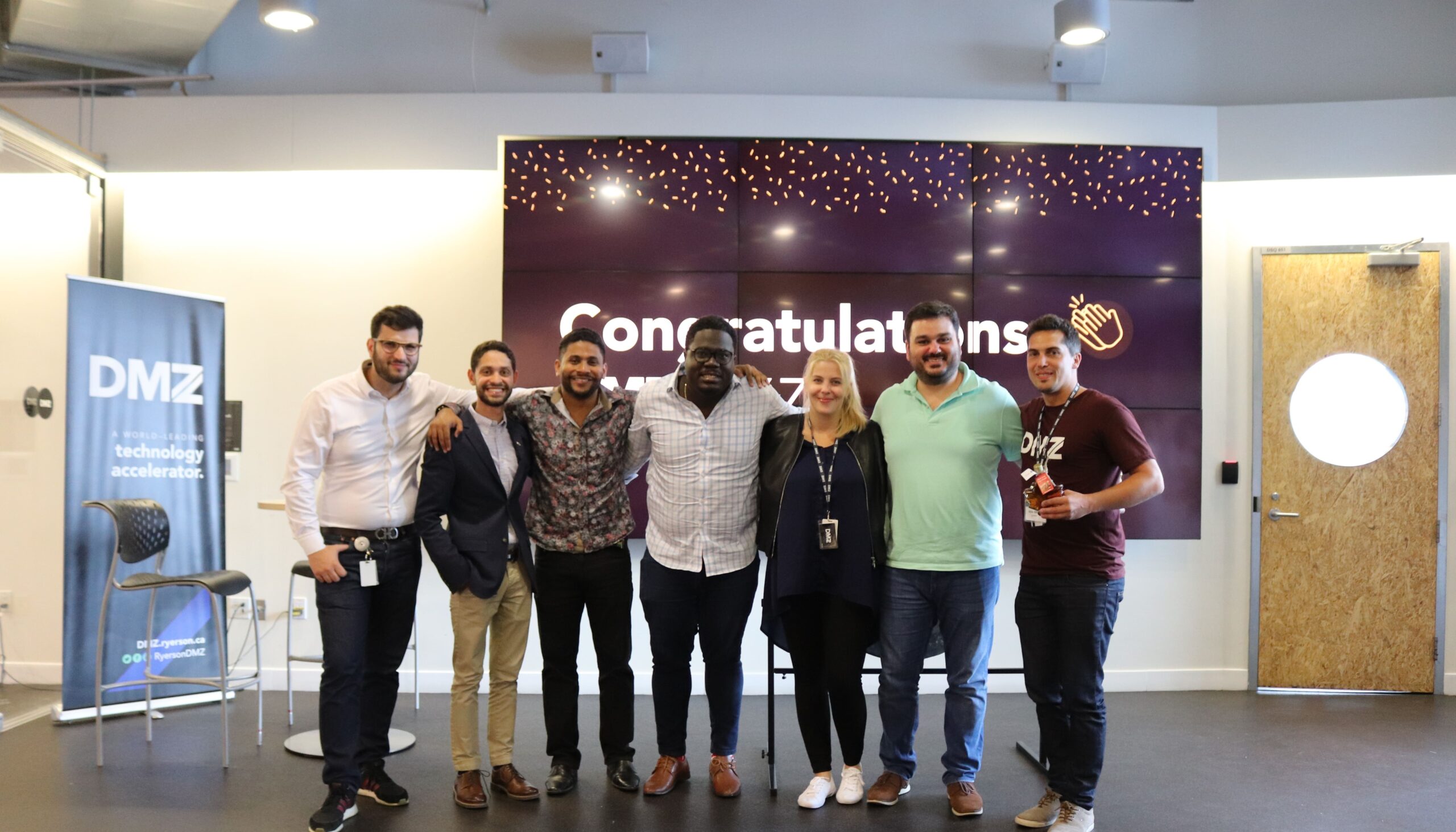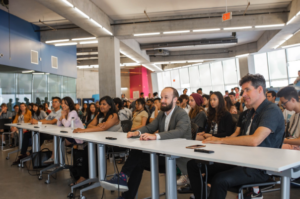In September 2019, the DMZ welcomed five companies from countries around the world to participate in DMZYYZ, a two-week, intensive soft-landing program in Toronto designed to accelerate business growth through access to coaching, customers, capital and community in Canada.
The participating companies included:
- Handiss (Lebanon)
- SmartTerm (Jamaica)
- RioAnalytics (Brazil)
- BankZee (Hungary)
- Zyntern (Hungary)
On the final day of the program, we sat down with each founder to chat about their impressions of the Canadian startup ecosystem. Here’s what they told us…
1. Canada’s diversity and openness is a strength
In 2018, Canada welcomed 321,065 immigrants. Almost 1 in 5 Canadians speak more than one language at home. Canada’s population reported 250 ethnic origins and ancestries. These are just a few of the statistics that reflect Canada’s diversity.
Canada’s diversity, progressiveness and openness is often seen by people at home and abroad as a strength, since these attributes have a positive relationship with a healthy economy and thriving society. The founders we spoke with agreed.
“Before coming to Toronto, I hadn’t imagined a city like it existed,” said the founder of Brazil’s RioAnalytics. “You hear people say that Toronto is a great city, but you really have to come here to experience it. I want my team, as well as my family, to be exposed to this level of diversity.”
Kata Ludvig, the co-founder of BankZee from Hungary agreed, adding: “The thing that surprised me most about Toronto and the DMZ community was the openness of its people. People from around the world move here, and it’s easy to see why – Canada is accepting and diverse, making it a great place to run a global business.”
Banksy’s founder had an additional perspective on the matter, saying, “Being a female founder, I didn’t know what to expect. But I felt absolutely supported during my time here.”
2. Canadians care about creating impact – not just profit
Social enterprises are on the rise, Millennials and Gen Z are asking more questions about impact, and climate change is an issue that’s top of mind. In Canada, social and environmental issues are talked about openly and often – and our visiting founders noticed that too.
The founder of Jamaica’s SmartTerm commented, “Going into the Investor Zone, we saw that the investors here have interests beyond simply making money – they’re interested in our ideas and the impact we’re trying to make to improve education. Finding thoughtful investors who actually believe in your mission is really exciting and encouraging.”
Creating positive impact is not only good business, it’s also the right thing to, and many of our international founders noticed that this is a prevalent attitude in the Canadian startup ecosystem.
3. Support for startups in Canada is extensive
Our visiting founders shared a similar sentiment: Canada offers superior support for both domestic and international startups.
Handiss’ founder discovered that through the DMZYYZ, he was able to test and validate his idea in a Canadian market. “Having B2B meetings here in Canada showed me the pain points people are facing and how we could adjust our business model to bring our business to Canada,” he said. The founder of SmartTerm added to this point, saying, “I learned that the way we explain, sell and offer education in Jamaica is different from the conversation in Canada. So, when we tap into the Canadian and North America market, we’ll have to pivot our messaging a lot. I wouldn’t have known the extent of this had I not been here on the ground.”
The founder of Banksy also agreed that Canada is a great place to grow a startup. In fact, while she was here, she was able to meet with four of the five major banks, secure a large customer, and expand her network substantially. “Coming to Canada through a program like the DMZYYZ is a major boost for your startup. For a foreign company, like mine, it’s a gateway into the Canadian market, and you get to tap right into the middle of the network, surrounded by experienced mentors and customers.”
A similar sentiment was shared by Attila Balogi, the founder of Zyntern. He said, “If you’re thinking of coming to Canada or North America, there are lots of incredible resources to help you. Being part of DMZYYZ saved me months – if not years – of time, plus money. Before I arrived, I was already being connected to the right people in Canada. It’s a faster, more curated route than doing it alone.”
Want to learn more about DMZYYZ and how to apply? Check us out at https://dmz.torontomu.ca/dmzyyz/.







